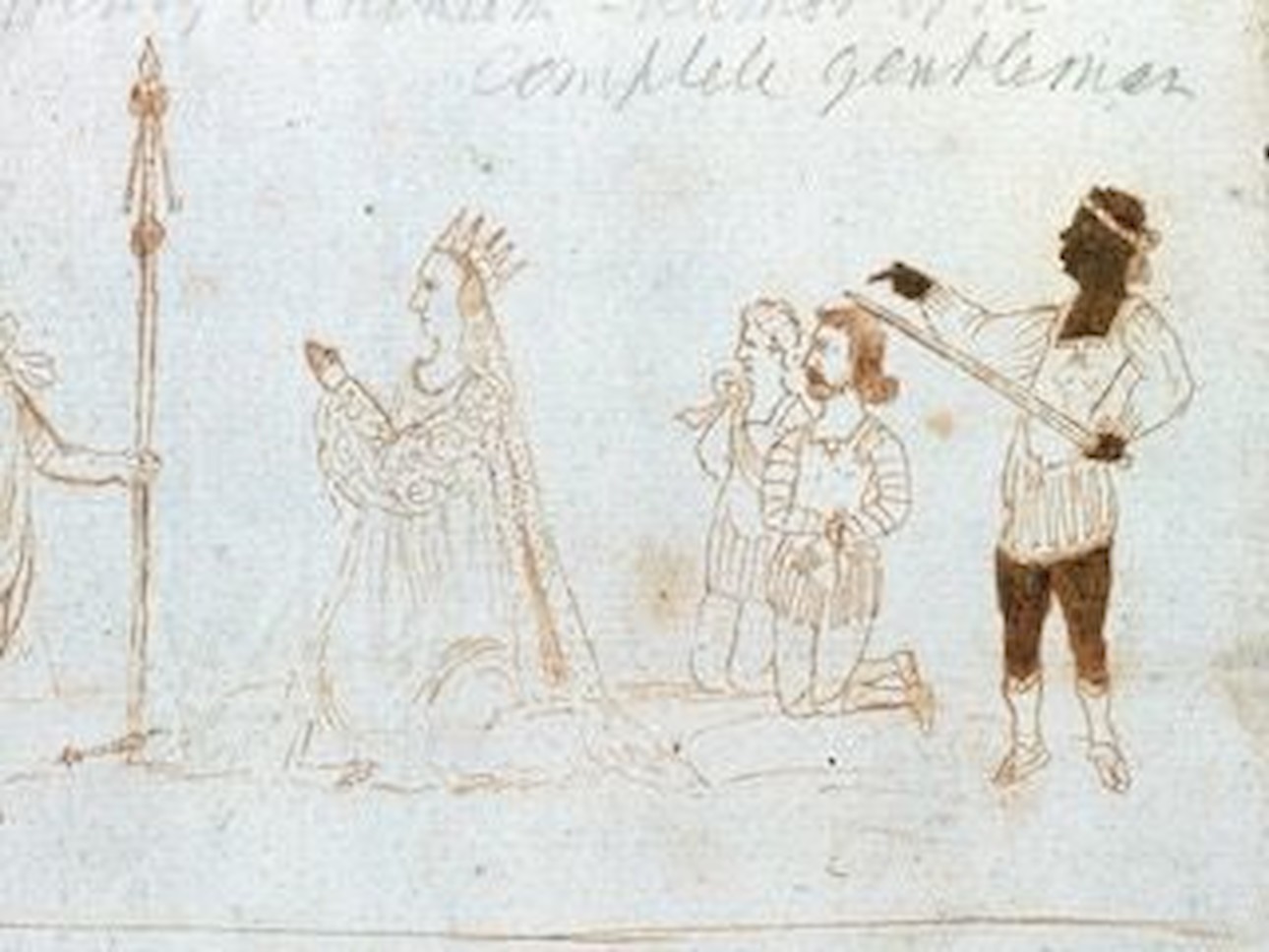Blackface by Marco Mendonça
Uma produção Alkantara
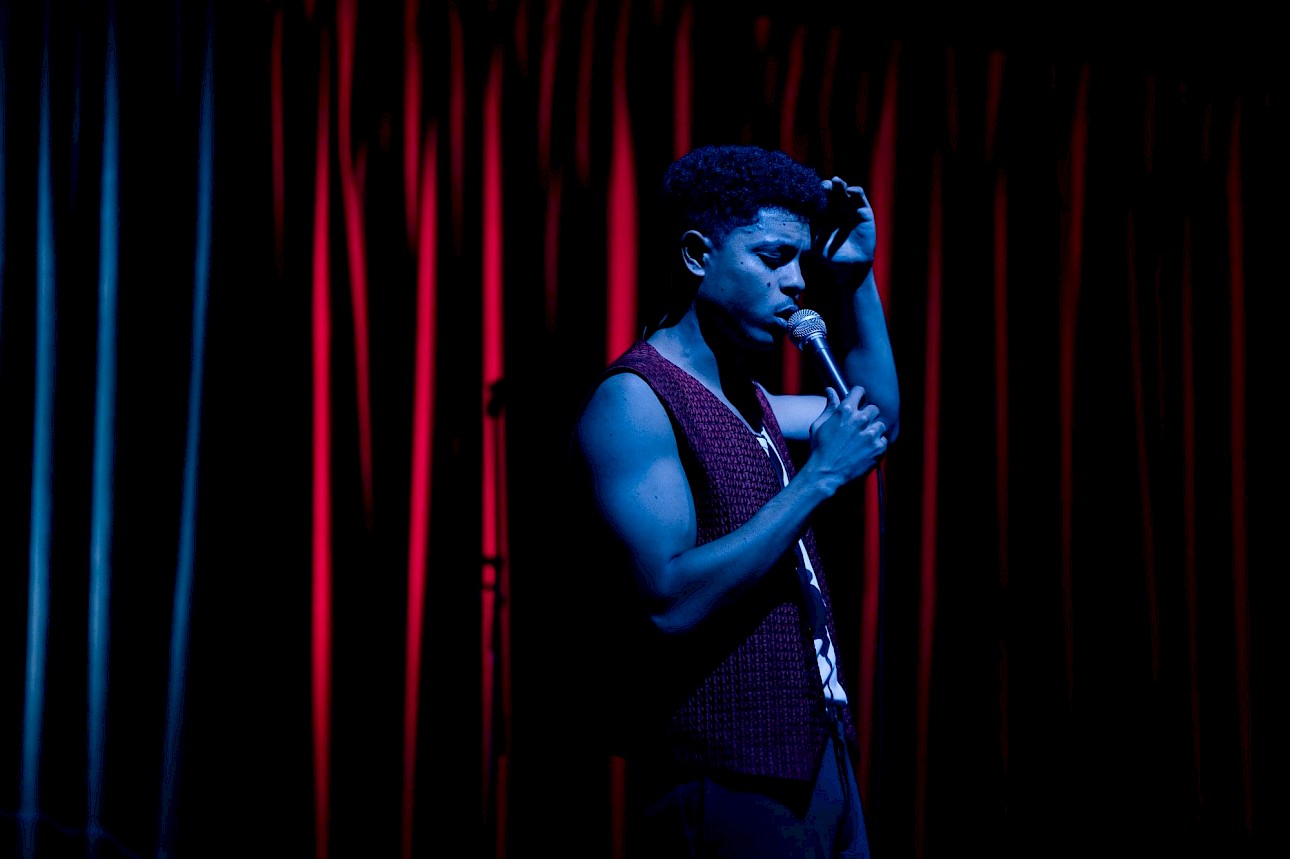
Marco Mendonça’s one-man-show is a musical lecture-performance that shifts between stand-up, satire, documentary theatre, and autobiography. Through images, videos, and comedy sketches, he takes us on a journey through the long and painful history and legacy of blackface.
Blackface – a racist theatrical practice in which performers wear makeup to portray a caricature of a black person – is used to degrade, objectify and dehumanise black people, portraying them as unintelligent, lazy, and untruthful, among other negative attributes.
Historically blackface provided comfort and comic relief for its audiences. Here, it reflects the presence of racism in Portuguese traditions, right up until the present day.
The premiere of Blackface is scheduled for 17 November at Teatro do Bairro Alto, as part of theAlkantara Festival 2023.
Credits
Created and performed by Marco Mendonça Creative advisor Bruno Huca Dramaturgy advisor Gisela Casimiro Music and sound design Mestre André Vídeo Heverton Harieno Lighting design Rui Monteiro Set Pedro Azevedo Costumes Aldina Jesus Translation (English) Joseph Owen Surtitles (Portuguese) Patrícia Pimentel Technical director Manuel Abrantes Production Alkantara - Sinara Suzin and Carolina Gameiro Coproduced by Alkantara, Teatro do Bairro Alto and Teatro Viriato Coproduction residency O Espaço do Tempo Residency support Moussem Nomadic Arts Centre Thanks to Ana Cristina Mendonça, André e. Teodósio, Artistas Unidos, Bernardo Peixoto, Catarina Amaral, Cidália Espadinha, Cleo Diára, Eduardo Mendonça, Eduardo Molina, Gio Lourenço, Isabél Zuaa, Márcia Mendonça, Marcos Cardão, Maria Jorge, Nádia Yracema, Nuna, Nuno Lopes, Soraia Tavares, Raquel S., Tiago Bartolomeu Costa and Vanessa Coelho
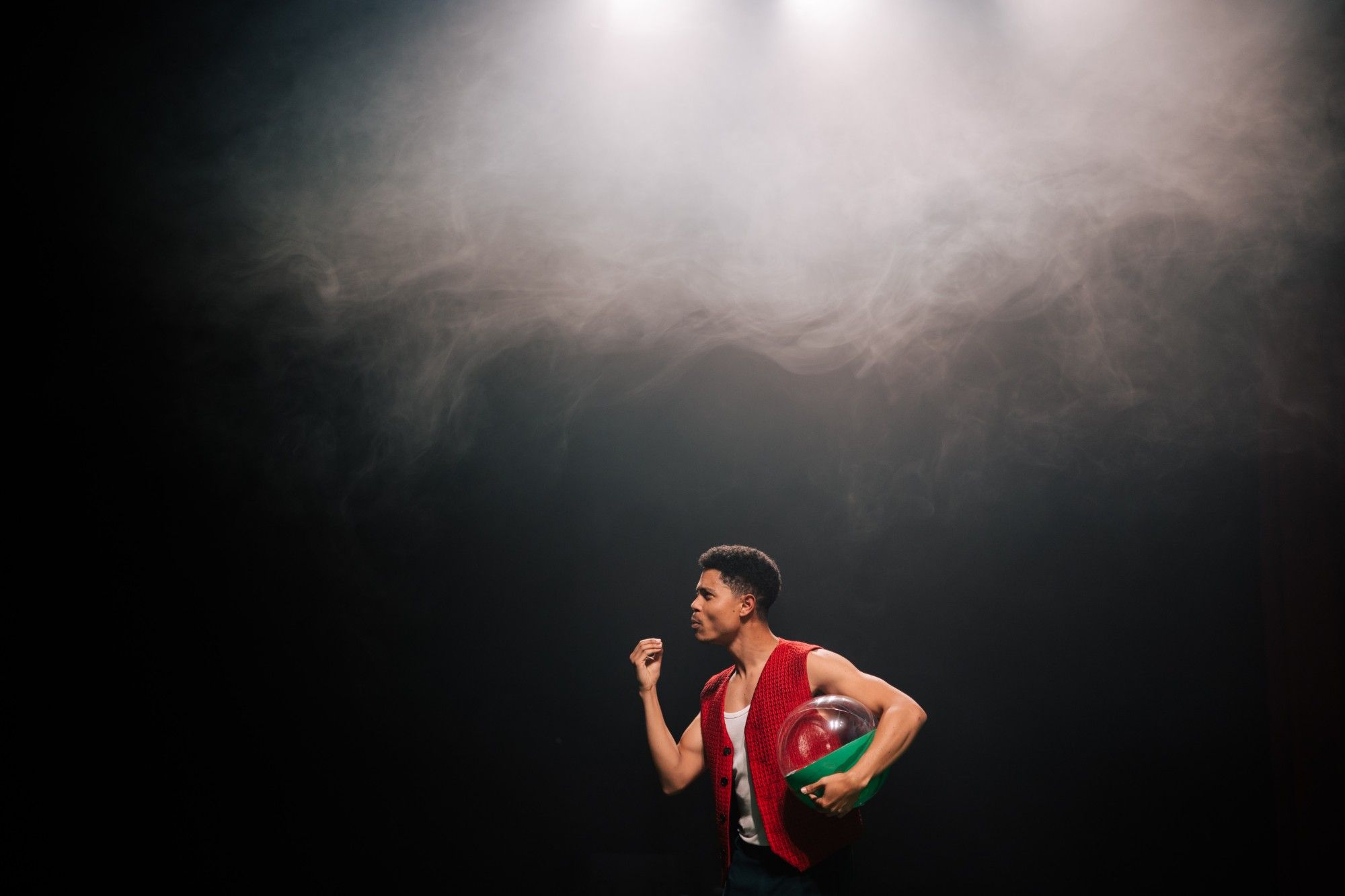
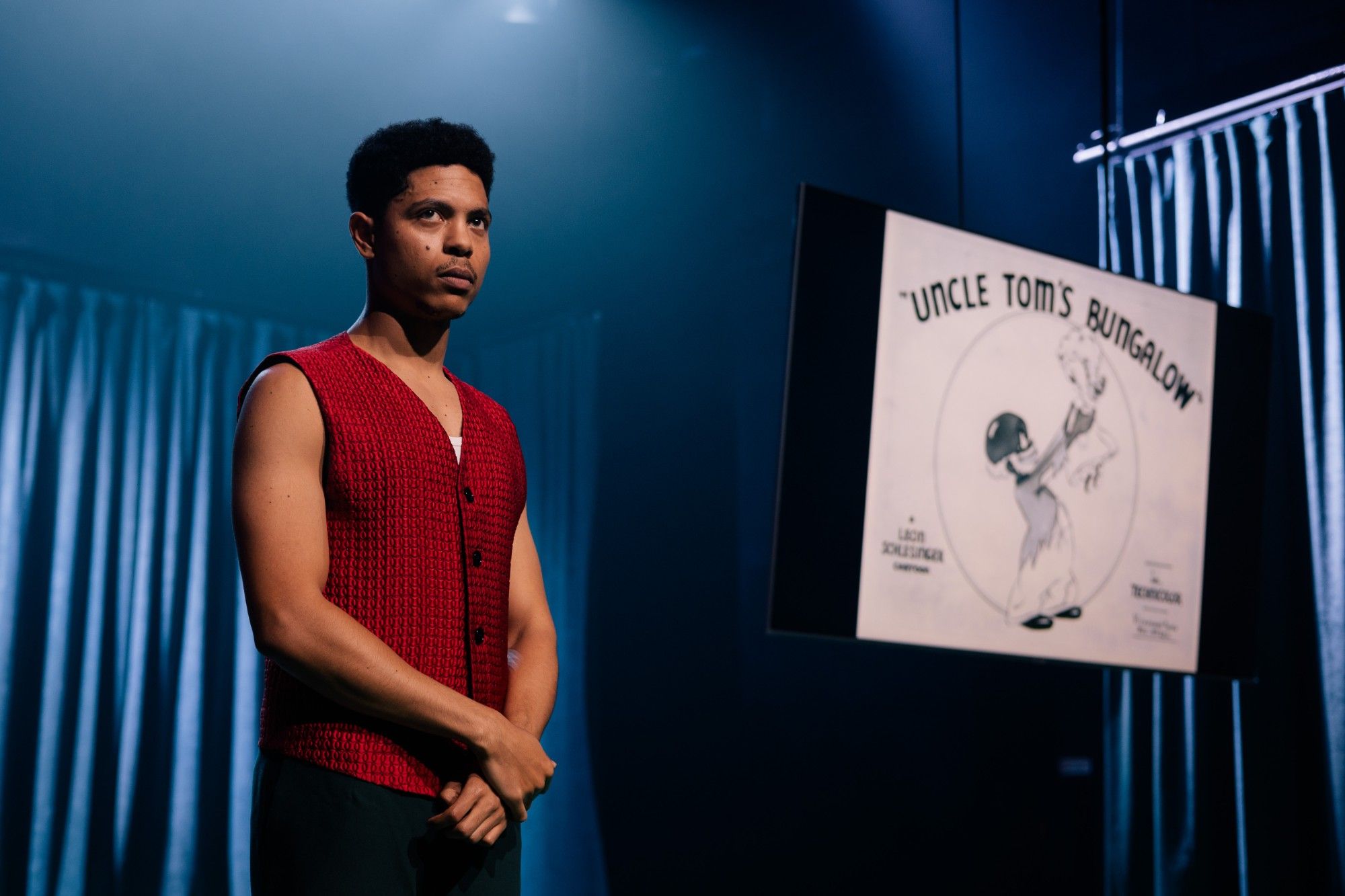
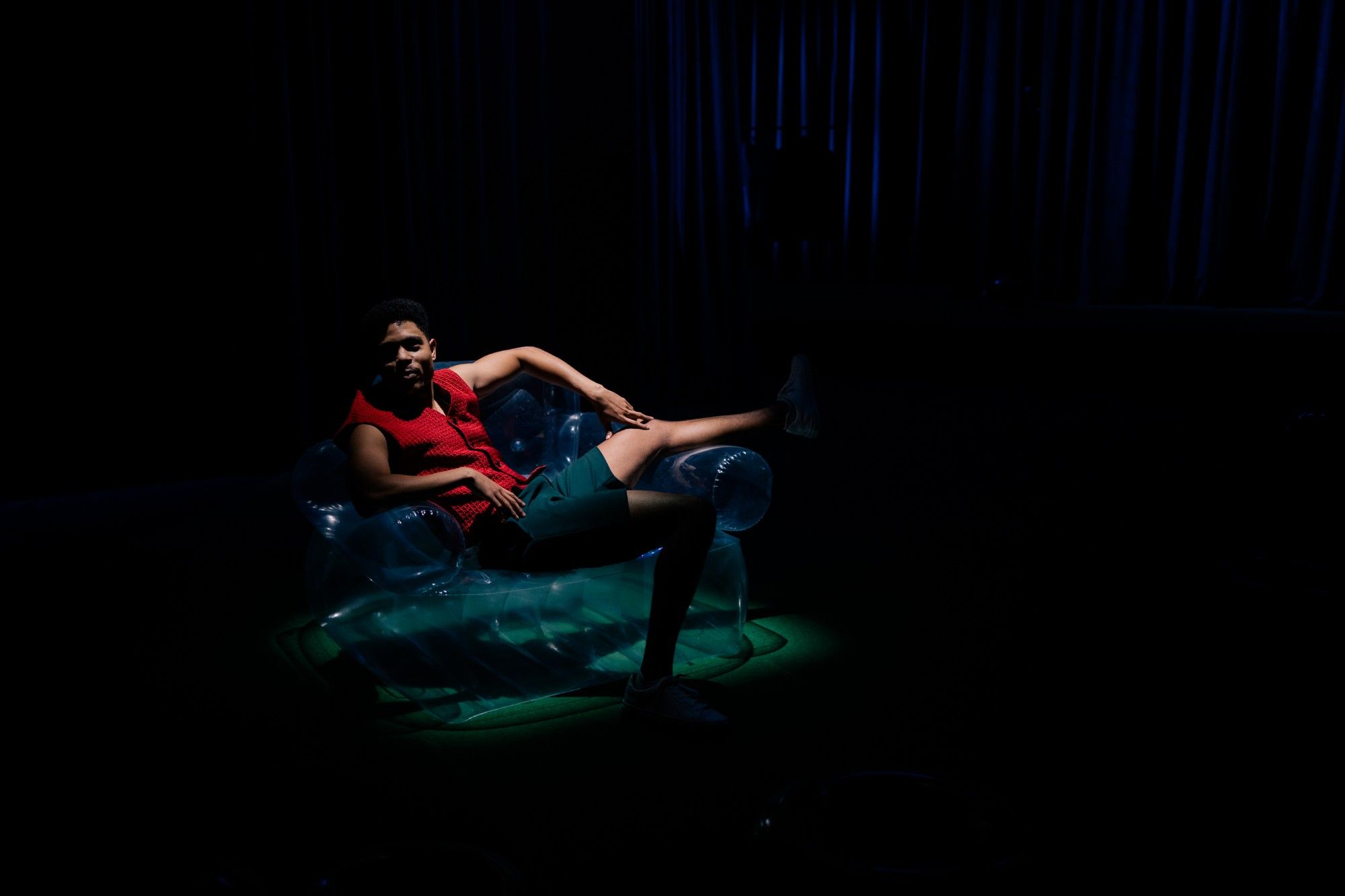
A brief introduction to blackface
In Portugal, blackface has been around for a long time.
I remember being a child, still living in Mozambique, and listening to cassettes of a popular character called Parafuso, created by Romão Félix in the 1950s. In those cassettes, Romão Félix would tell goofy stories of Parafuso’s interactions with the “white employer”, creating numerous memorable expressions, quoted and repeated by a huge audience both from Portugal and Mozambique. Listening to him back then, I was convinced Parafuso was a real black Mozambican man, whose work was famous all the way to Portugal, because that was where the cassettes came from.
Years later I realized that Parafuso was actually a white Portuguese man, whose success had been built with a wig, a bottle of shoe polish and a red lipstick, promoting a violent, grotesque and stereotyped image of black people from Mozambique.
Chimamanda Ngozi Adichie argues that some stereotypes can even be true, yet they’ll always be incomplete, for they make “one story become the single story”. That single story, which has put an unbearable weight on black people’s shoulders for a very long time, cannot be the reason for the success of a few and an amplifier for the oppression of many.
The idea that humor has no limits is as old as the practices that make those limits necessary. Humor may be used to question those limits by hitting the pause button on certain political and social, ethic and moral landscapes. But, as explained by Marcos Cardão in his text “Blackface em Portugal. Breve história do humor racista” (Blackface in Portugal. Brief history of racist humor), it’s important that one doesn’t look at humor as a practice inherently immune to criticism, “even when the humoristic exercise offends marginalized minorities or articulates and reproduces racist stereotypes.”
It’s certain that blackface, first becoming recurrent in the United States, quickly found its place in other western cultures, infiltrating the watching list of white and eurocentric societies, from fashion to literature, from politics to pop culture, from advertising to entertainment, where it all began. Portugal, as an ancient colonialist power and as a nation which still glorifies the slave trading era, is no stranger to racist practices as a form of entertainment. It is in fact a country which, according to Marcos Cardão, “normalized the idea of virtual absence of racist prejudice” in its own society.
Blackface - the show
It is said that the concept of political correctness has only contributed to the end of freedom of speech, shortening the limits of artistic creation of artists who, after all, just want to do their job. In this show, I will argue that racism is not a job, even though entire societies still profit from it. Even though well known names of Portuguese comedy fill up entire venues doing it, I will also argue that racism is far from having any comedic value.
Despite the centuries of oppression making it a taboo in the Portuguese socio-political context, I will finally question the persistent framing of racism as a myth. It isn’t a job, it isn’t comedy, it isn’t a myth, so does it have a place in art? Do racist practices have more space in the Portuguese artistic landscape than the people who are ridiculed by those same practices?
— Marco Mendonça
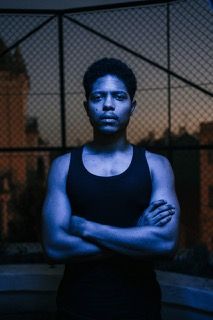
Marco Mendonça was born in Mozambique in 1995 and lives in Lisbon since 2007. He graduated in theatre at the Escola Superior de Teatro e Cinema. He works regularly with the company Os Possessos. He was a trainee at Teatro Nacional D. Maria II, where he worked with João Pedro Vaz, Tiago Rodrigues and Faustin Linyekula. He was part of shows by Liesbeth Gritter (Kassys), Tonan Quito and Mala Voadora. He debuted as author and co-creator, alongside João Pedro Leal and Eduardo Molina, in "Parlamento Elefante", a project that won the Amélia Rey Colaço scholarship. In...
Related articles:
- 17.11 - 19.11.2023
- Performances
- Talks
Marco Mendonça
Blackface
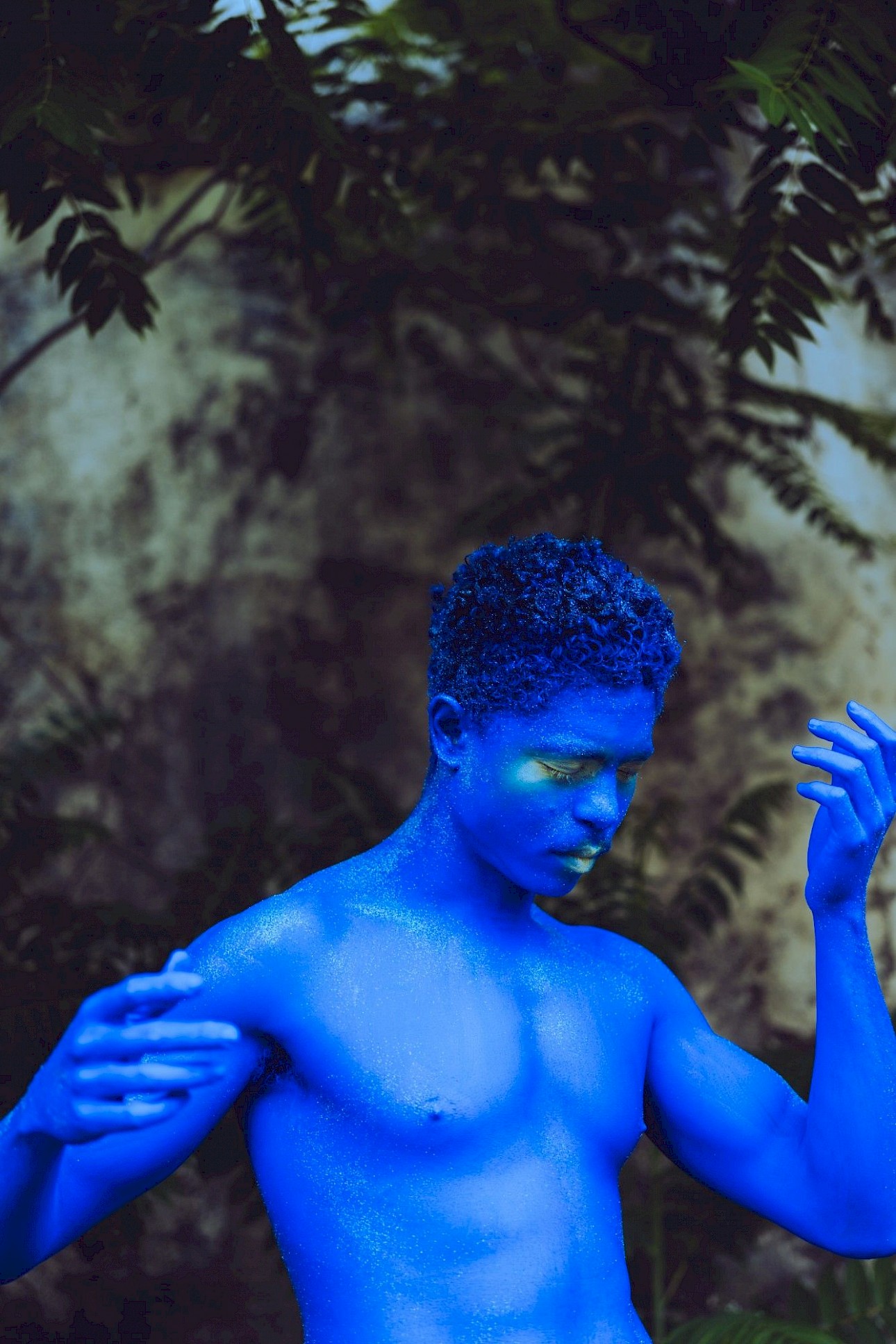
- FRI 17.11.2023 9:00 PM
- SAT 18.11.2023 7:30 PM
- SUN 19.11.2023 5:30 PM
- Performances
- Talks
- Produced by Alkantara
The tour of Blackface begins
A stage show by Marco Mendonça
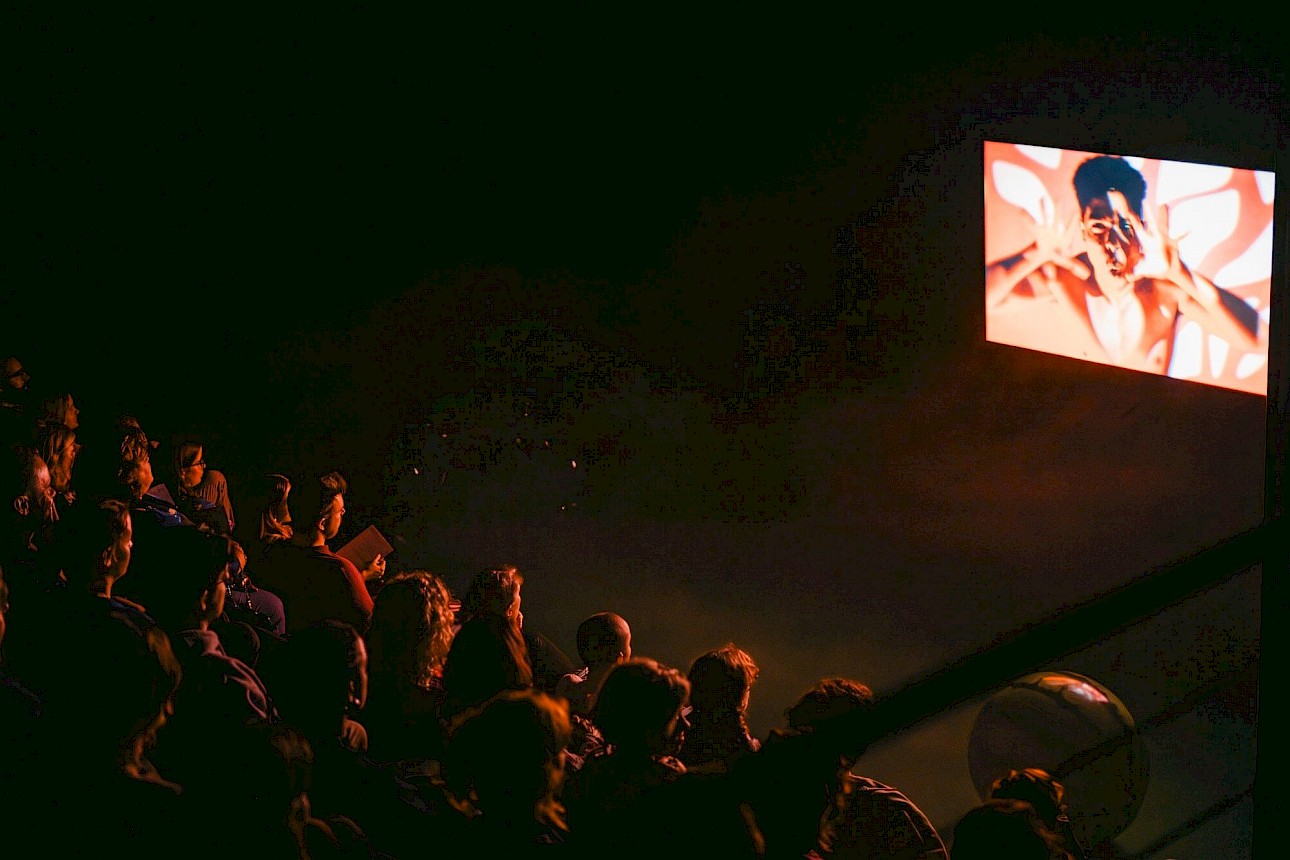
- Produced by Alkantara
- 01.12.2024
- Other Gatherings
Heverton Harieno
Blackface, the Documentary
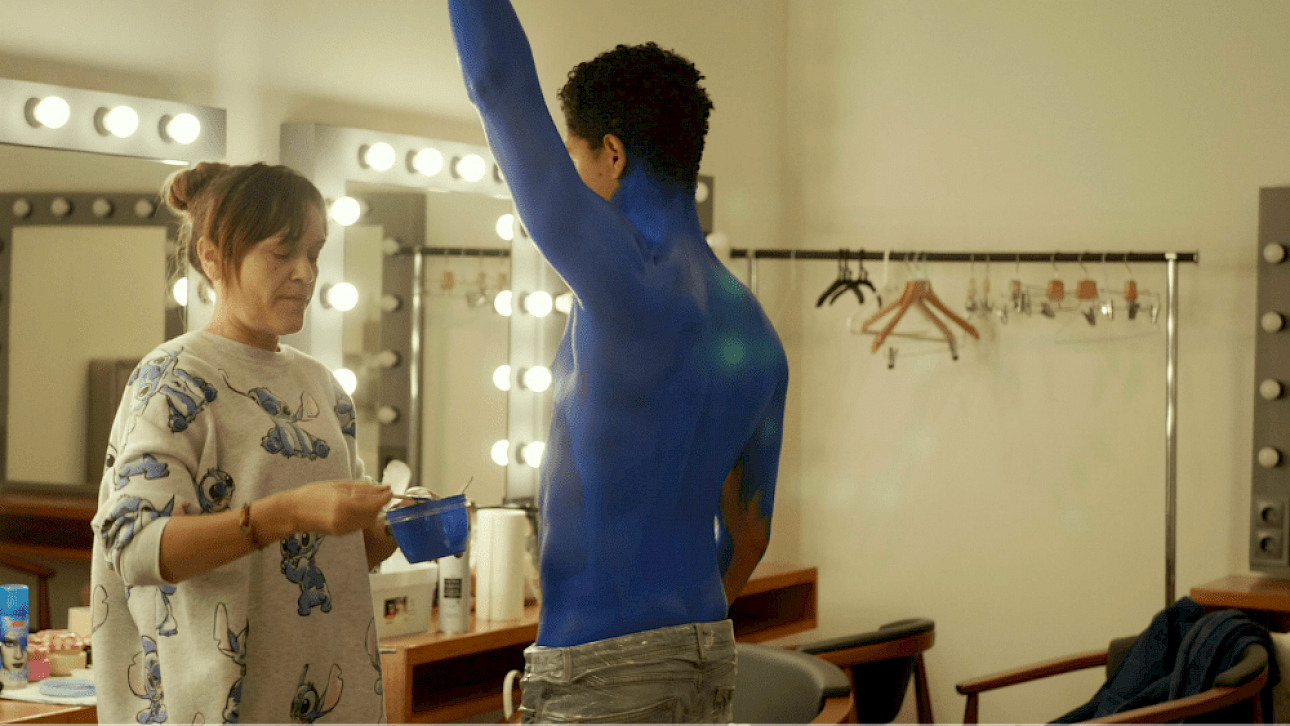
- SUN 01.12.2024 8:00 PM
- Other Gatherings
